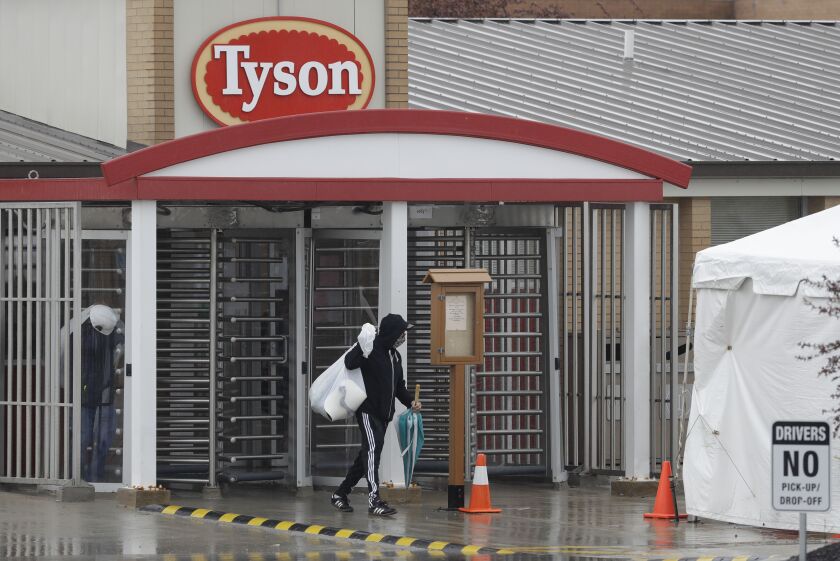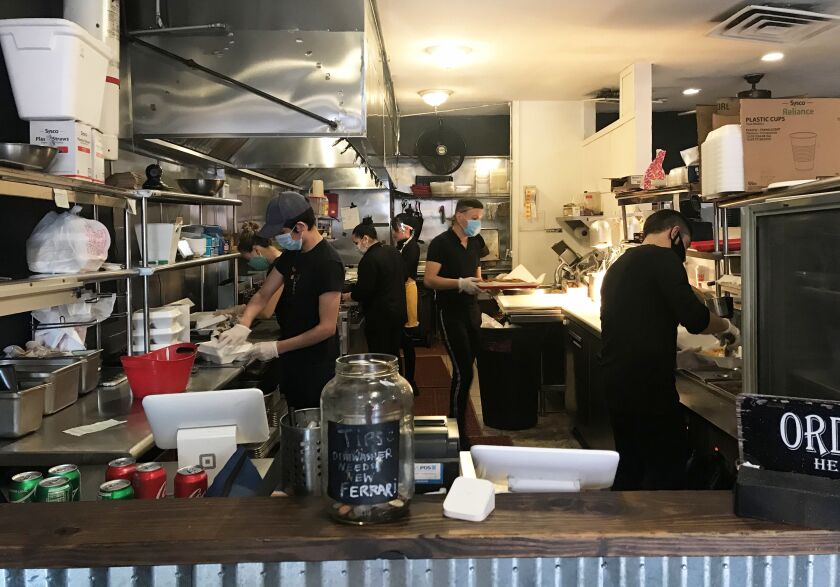Around half of Illinois restaurants are currently closed due to the coronavirus pandemic.
One of those that’s managed to stay open is The Jibarito Stop, a popular lunch and dinner spot on 18th Street in Pilsen.
But as COVID-19 ravages meat processing plants across the country, leading to shortages, the Puerto Rican restaurant will close its doors for an indefinite period of time starting Wednesday as prices for some cuts have skyrocketed.
“We usually get around 600 pounds of inside round steak a week for around $3 a pound, but now it’s at $6 a pound,” said Cely Rodriguez, who opened The Jibarito Stop with her business partner Moraima Fuentes in 2015.
“We’ve managed to stay open this long and thankfully so far business has been good, but at this rate, we would start losing money if we didn’t close.”
Meatpacking workers hit hard
The squeeze felt by The Jibarito Stop and other restaurants, experts said, is directly tied to large coronavirus outbreaks at meatpacking plants nationwide.
More than 4,900 workers at the facilities have contracted COVID-19, according to a Centers for Disease Control and Prevention report released Friday. At least 20 have died.
Those infections have added to the disproportionate burden facing black and Latino working-class communities during the pandemic as approximately 70% of meatpacking workers are either black or Latino, according to the Center for Economic and Policy Research, a think-tank based in Washington, D.C.
Immigrants have also been hard hit as they represent 52% of frontline meatpacking workers despite making up 17% of the total U.S. workforce. Nearly half of frontline meatpacking workers live in low-income families, while one in eight have income below the poverty line.
The CDC said meatpacking plants became hotspots for the virus because they have difficulties maintaining physical distance among employees. Another factor cited is that many meatpacking workers live in crowded households and often carpool to work.
Despite the high infection rates, some plants that were forced to close have now reopened at limited capacity in the wake of an executive order from President Donald Trump.
Shortages here to stay
Still, the nation’s meat supply is “down across the board,” said Sarah Little, a spokeswoman for the North American Meat Institute, an industry trade group, “so the next couple of weeks we should see how the system works. It’s never been tested like this before.”
Sam Toia, president of the Illinois Restaurant Association, an industry group, said the meat shortage will be a reality for the foreseeable future.
“It’s going to get worse before it gets better,” he said, “so restaurateurs should try and buy the meat that they can right now.”
That strategy might work for restaurants that can buy and store meat in bulk, but small joints like The Jibarito Stop are caught between buying whatever meat is available — at whatever price — and potentially charging customers more to make up the difference.
“Right now, steak is our most popular item, and the cut we usually buy is either unavailable or too expensive,” Fuentes said. “And what is available is frozen, and we can’t use that because we don’t have a walk-in cooler. It’s important to have our meat fresh — that’s the only way we can make it work.”
While the meat shortage is the main factor behind The Jibarito Stop’s temporary closure, Fuentes said the pandemic has cut into her bottom line in other ways, too.
“The price for sanitation products like masks and gloves has gone up by a lot [and] third-party delivery vendors like Grubhub and Uber Eats sometimes take up to 30 percent of a sale [or more] and that’s really all we got coming in right now,” she said.
Rodriguez said the restaurant doesn’t have the wherewithal to pay its handful of employees while it’s closed, but she hopes that shutting down for now will help ensure they have a job to come back to.
“Our margins were already so small, and now they’ve basically disappeared,” she said. “It was a tough decision to close, but we want to be here for our employees for when we finally have a chance to fully open up.”
Contributing: AP
Carlos Ballesteros is a corps member of Report for America, a not-for-profit journalism program that aims to bolster Sun-Times coverage of Chicago’s South Side and West Side.








